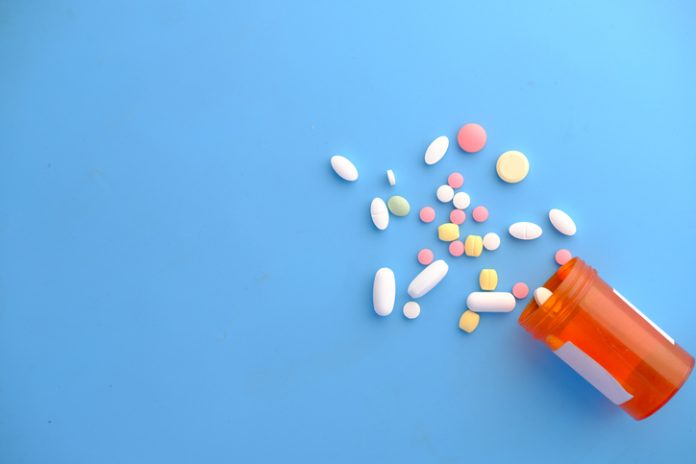Medicine shortages have become an increasingly pressing concern for healthcare systems worldwide, with potentially serious consequences for patient care. The COVID-19 pandemic amplified existing vulnerabilities in pharmaceutical supply chains, prompting new European initiatives to strengthen medicine security. Among these initiatives, the Critical Medicines Alliance stands as a cornerstone of Europe’s strategy to secure access to essential treatments, with Medochemie taking a prominent role in this crucial effort.
The Growing Challenge of Medicine Shortages
Medicine shortages represent a complex, multifaceted challenge for healthcare systems. Beyond immediate patient care concerns, shortages create ripple effects throughout healthcare delivery: forcing clinicians to use alternative treatments, creating additional workload for healthcare professionals, and potentially increasing costs for health systems.
Supply chain disruptions can occur for numerous reasons: manufacturing quality issues, unexpected demand spikes, raw material shortages, or regulatory challenges. The increasing globalization of pharmaceutical manufacturing has created additional vulnerabilities, with production concentrated in specific regions and dependencies on long, complex supply chains.
These vulnerabilities became particularly apparent during the COVID-19 pandemic, when demand for certain medications spiked dramatically. Generic manufacturers like Medochemie worked tirelessly during this period to meet exponentially increased demands for essential ICU and other needed medicines, which in some cases rose by up to 900% in the early days of the outbreak.
Formation of the Critical Medicines Alliance
In response to these challenges, the European Commission established the Critical Medicines Alliance (CMA) in January 2024. This consultative mechanism brings together stakeholders from EU Member States, pharmaceutical industries, civil society organizations, and scientific communities to address vulnerabilities in critical medicine supply chains.
The Alliance was formally launched on April 24, 2024, in Brussels, during an event organized by the Belgian Presidency of the EU and the European Commission. This high-level event brought together European Ministers of Health and industry representatives, European Commissioners, participating companies, and civil society organizations to mark the beginning of this important initiative.
Medochemie participated in this landmark event through Andreas Loizou, Group Business Development Director, highlighting the company’s commitment to ensuring reliable access to critical medicines across Europe.
Medochemie’s Critical Medicines Portfolio
As a leading pharmaceutical manufacturer with nearly five decades of experience, Medochemie brings valuable expertise to the Critical Medicines Alliance. The company maintains an extensive portfolio of EU-designated critical medicines, produced at European-authorized facilities with significant investment in maintaining manufacturing capabilities.
Many of Medochemie’s critical medicines play a vital role in combating antimicrobial resistance, as they include older molecules that face less bacterial resistance. This makes them particularly valuable in Europe’s antimicrobial stewardship strategy, where preserving effective treatment options remains a priority.
The importance of generic medicines like those produced by Medochemie cannot be overstated. While generic medicines account for 70% of all medicines consumed in Europe by volume, they represent only 19% of pharmaceutical market value. More strikingly, 92% of the European Commission’s list of critical medicines for major events and public health emergencies are generic medicines.
Alliance Structure and Objectives
The Critical Medicines Alliance operates through a structured governance system designed to ensure inclusive participation while maintaining efficient decision-making:
- The Forum includes all Alliance members and is regularly consulted on key milestones. It serves as the broadest consultative body within the Alliance structure.
- The Steering Board provides strategic orientation, comprising representatives from Member States’ health and industry ministries, relevant industries, patient and healthcare professional organizations, the Medicine Shortages Steering Group, and the European Medicines Agency.
- Two specialized Working Groups focus on specific priorities: one dedicated to strengthening EU manufacturing capacities for critical medicines and their active pharmaceutical ingredients, and another focused on diversifying international partnerships and cooperation.
The Alliance’s objectives align closely with Medochemie’s commitment to pharmaceutical supply security:
- Providing an inclusive and transparent consultative platform for European decision-makers
- Focusing on medicines facing the greatest supply vulnerabilities
- Identifying and addressing weaknesses in critical pharmaceutical supply chains
- Recommending priority actions and proposing tools to address identified challenges
- Encouraging manufacturing diversification and boosting production capacity
Understanding Supply Chain Vulnerabilities
The Critical Medicines Alliance’s work builds on extensive analysis of pharmaceutical supply chain vulnerabilities. Data from January 2023 to January 2024 reveals that over two-thirds of all reported medicine shortages stemmed from products with low supplier counts (fewer than five manufacturers), highlighting the importance of maintaining healthy competition in pharmaceutical production.
Generic medicines manufacturers like Medochemie play a crucial role in supply resilience precisely because they typically produce multi-source products, with several manufacturers making the same medication. This diversity of supply sources strengthens pharmaceutical supply chain resilience, particularly during periods of increased demand or when individual manufacturers face production challenges.
The importance of generic manufacturers becomes even more apparent when examining long-term medicine availability. In European markets where substitution is legally allowed, research shows that 40% of all off-patent products are only available as generic medicines 20 years after loss of exclusivity, representing 66% of the off-patent market by volume. In other words, without generic manufacturers, many essential medicines would simply disappear from the market despite their continued clinical importance.
Strategic Recommendations for Resilience
In February 2025, the Critical Medicines Alliance published its Strategic Report outlining key recommendations to enhance the security and resilience of EU critical medicines supply chains. This report, developed through collaborative efforts within the Alliance’s Working Groups, provides a roadmap for addressing supply chain vulnerabilities.
The report highlights vulnerabilities within Europe’s pharmaceutical supply chains and proposes substantial investments in strategic projects. It also addresses procurement policies, advocating for approaches that consider supply security rather than focusing exclusively on lowest cost.
A particularly important recommendation involves developing a harmonized and balanced framework for stockpiling requirements to ensure supply security without creating competitive national stockpiling mandates that could exacerbate shortages. The report also emphasizes the importance of strengthening partnerships with third countries to bolster supply resilience, recognizing the inherently global nature of pharmaceutical production.
Medochemie’s Manufacturing Commitment
As a member of Medicines for Europe, Medochemie is part of a sector that maintains over 400 manufacturing sites across Europe, with numerous projects underway to strengthen European pharmaceutical production capacity. This manufacturing presence is increasingly important as discussions about reshoring production have intensified following the COVID-19 pandemic.
Medochemie’s long-standing commitment to reliable medicine supply aligns with the Critical Medicines Alliance. The company’s 15 state-of-the-art production facilities across Cyprus, the Netherlands, and Vietnam provide the manufacturing capacity needed to ensure consistent availability of its medicines portfolio.
Quality manufacturing remains at the heart of Medochemie’s approach. All the company’s facilities meet European standards and are certified according to EU Good Manufacturing Practice (GMP) requirements, ensuring that patients receive high-quality, safe, and effective medications regardless of where they are produced.
Toward a Critical Medicines Act
Looking forward, the Critical Medicines Alliance’s work is expected to inform a dedicated European Critical Medicines Act. Medochemie, along with other Medicines for Europe members, has advocated for such legislation to support investments in manufacturing technology, market policies that encourage supply diversification, and digital tools to address shortage risks.
Key priorities for this legislation include:
A concrete shortage prevention strategy, with actions to reduce medicine shortages such as EU procurement guidance alongside national market reforms that reward security of supply and greater use of real-time serialization data to monitor demand and supply imbalances.
Partnerships between the EU and industry to restore European manufacturing competitiveness by boosting innovation in production technologies.
A shared commitment to ensuring access, availability and supply security based on EU solidarity, striving for equity in critical medicines access between EU countries and replacing competitive national stockpiling mandates with a coherent EU reserve policy.
Disclaimer: This article contains sponsored marketing content. It is intended for promotional purposes and should not be considered as an endorsement or recommendation by our website. Readers are encouraged to conduct their own research and exercise their own judgment before making any decisions based on the information provided in this article.



































